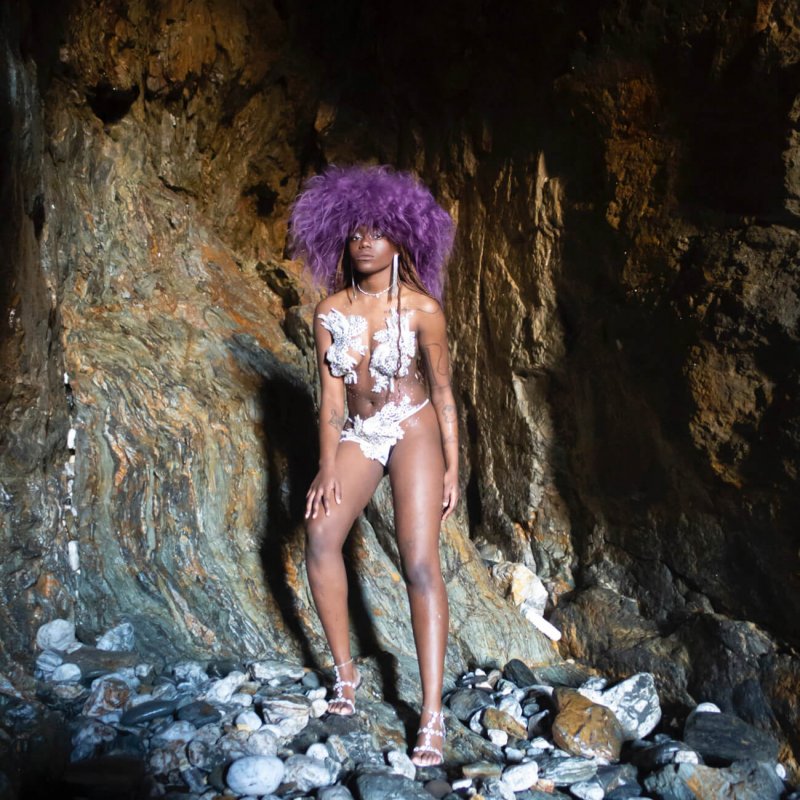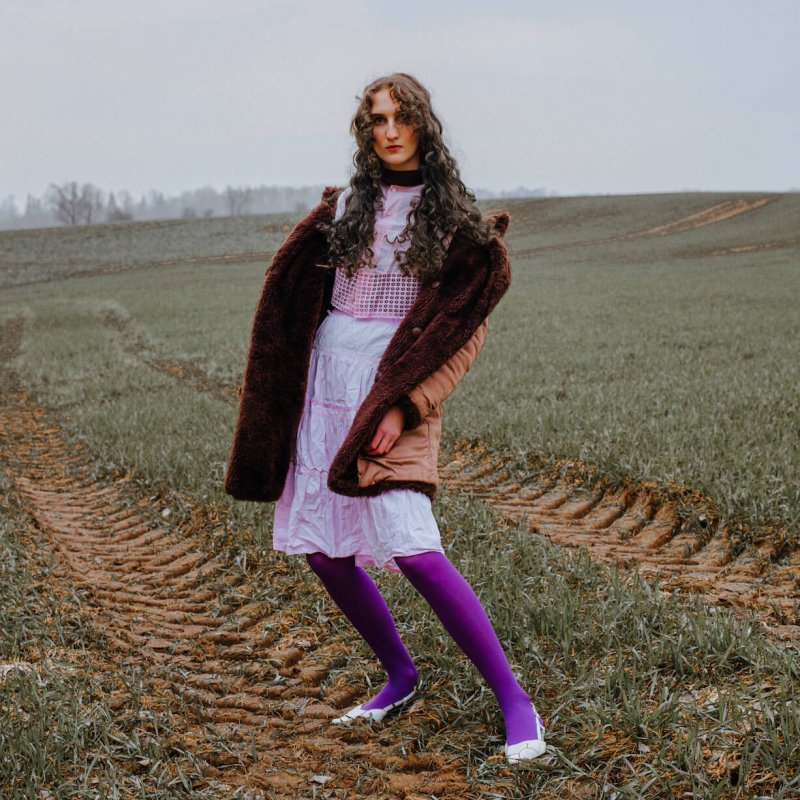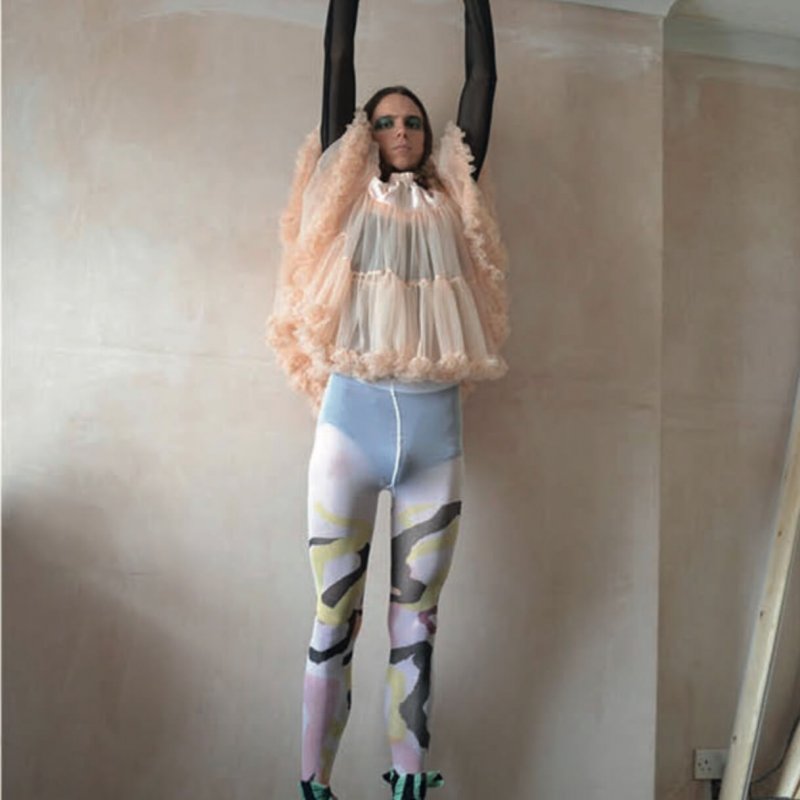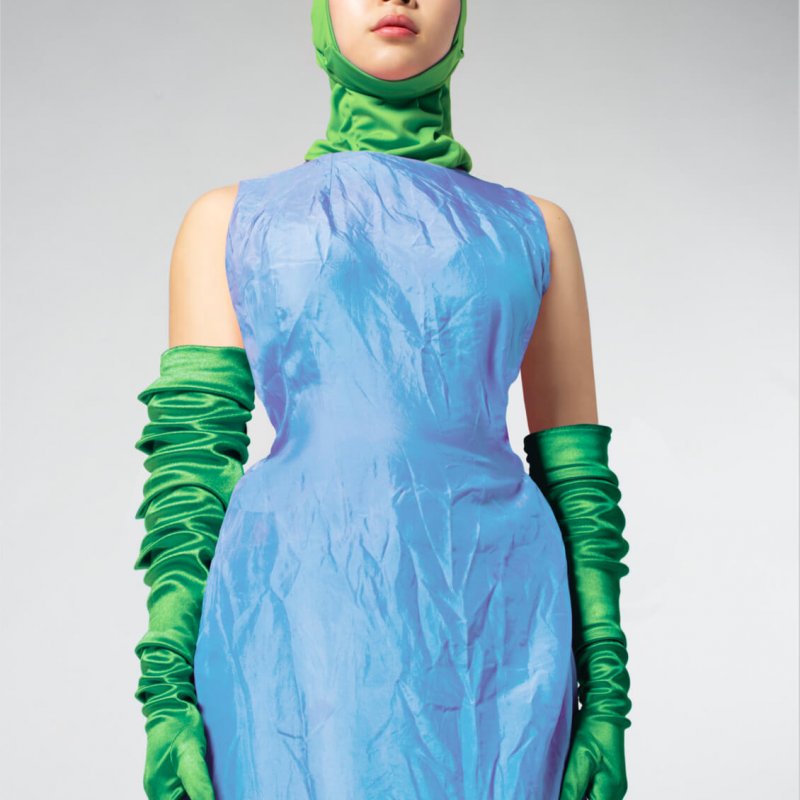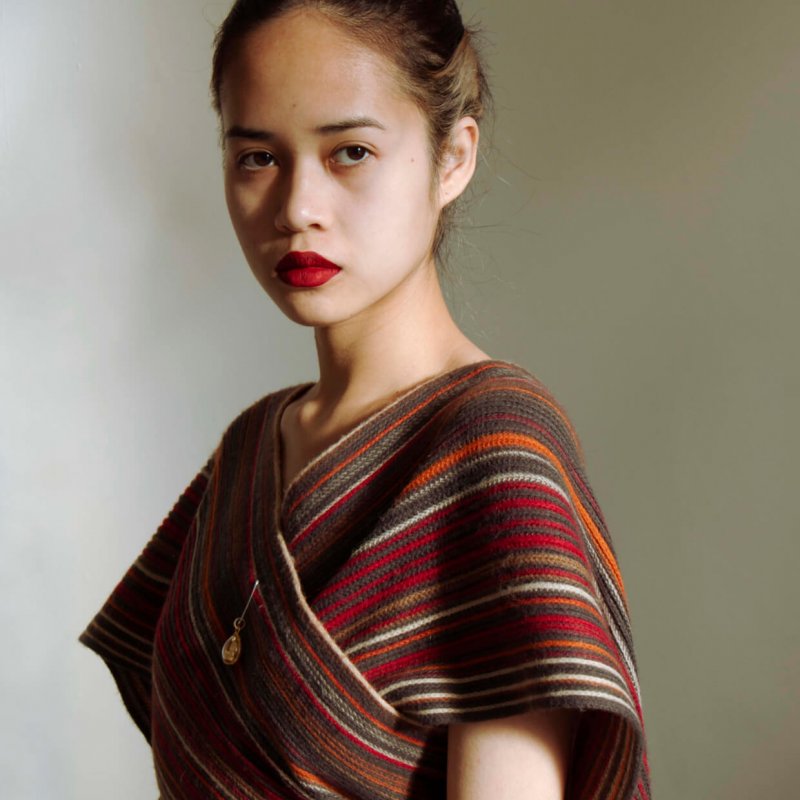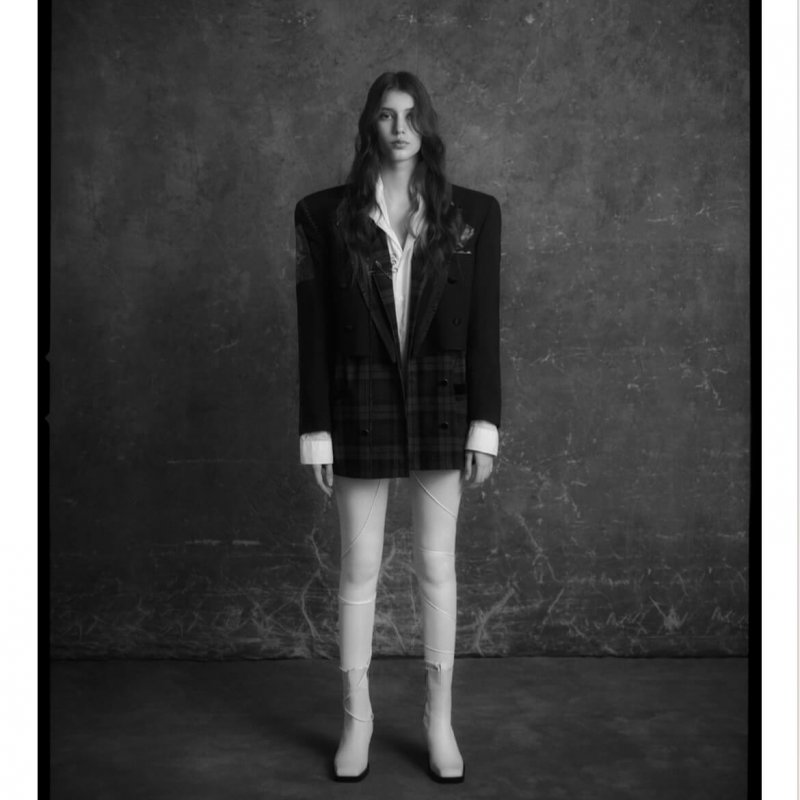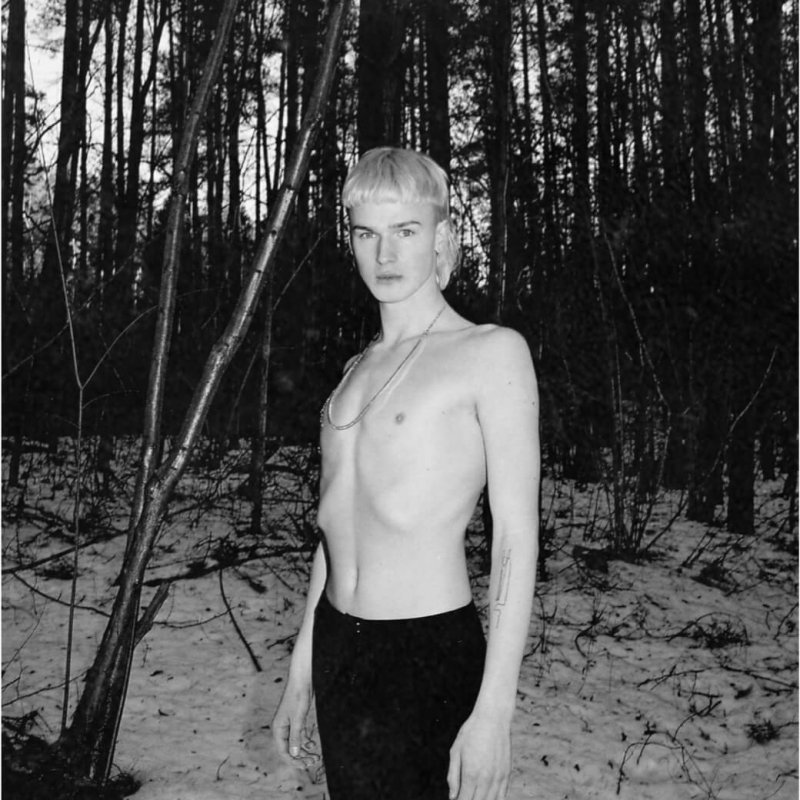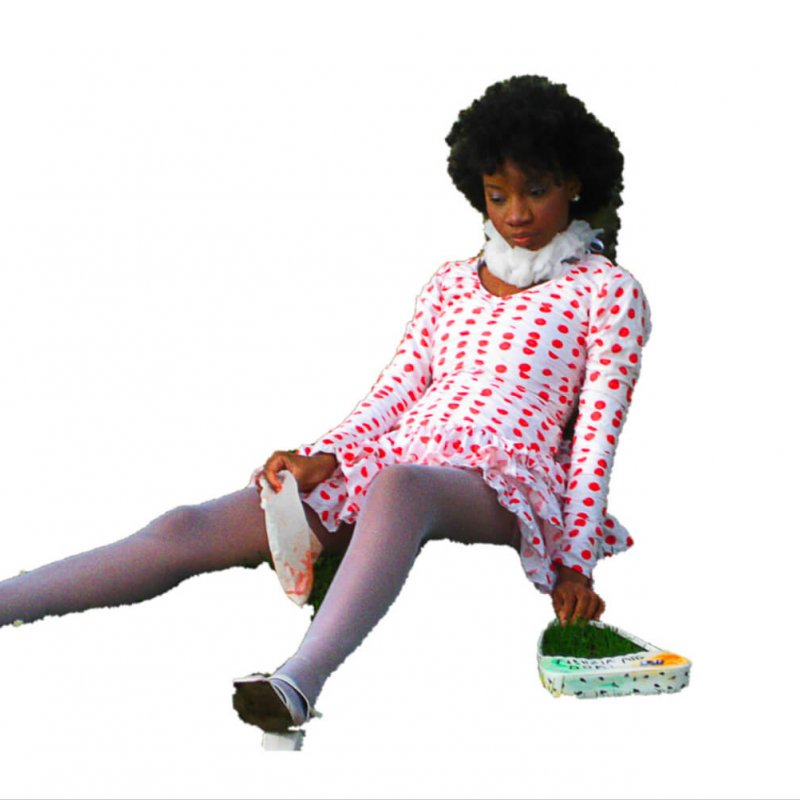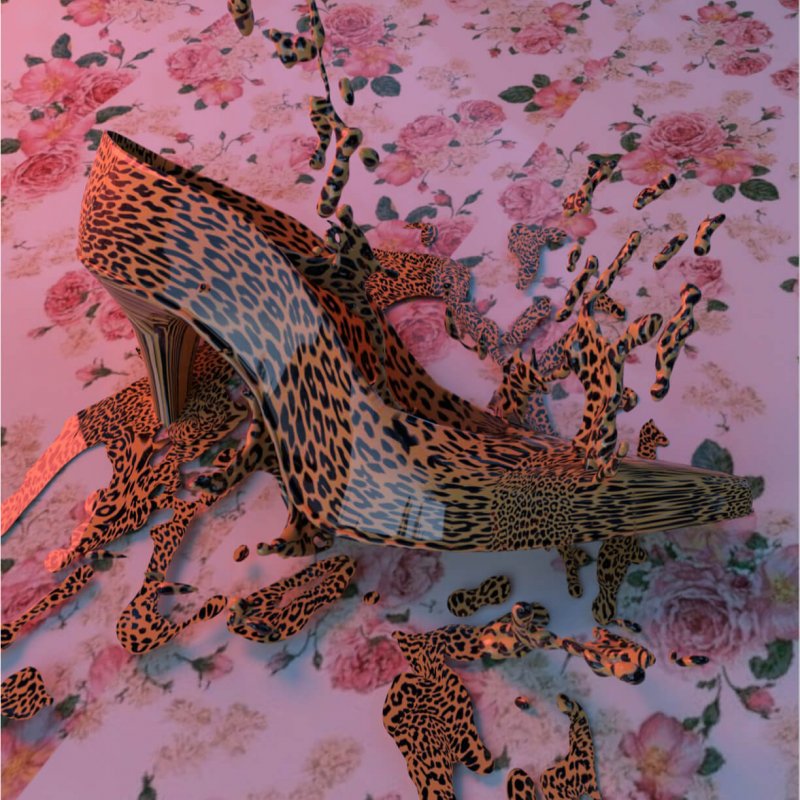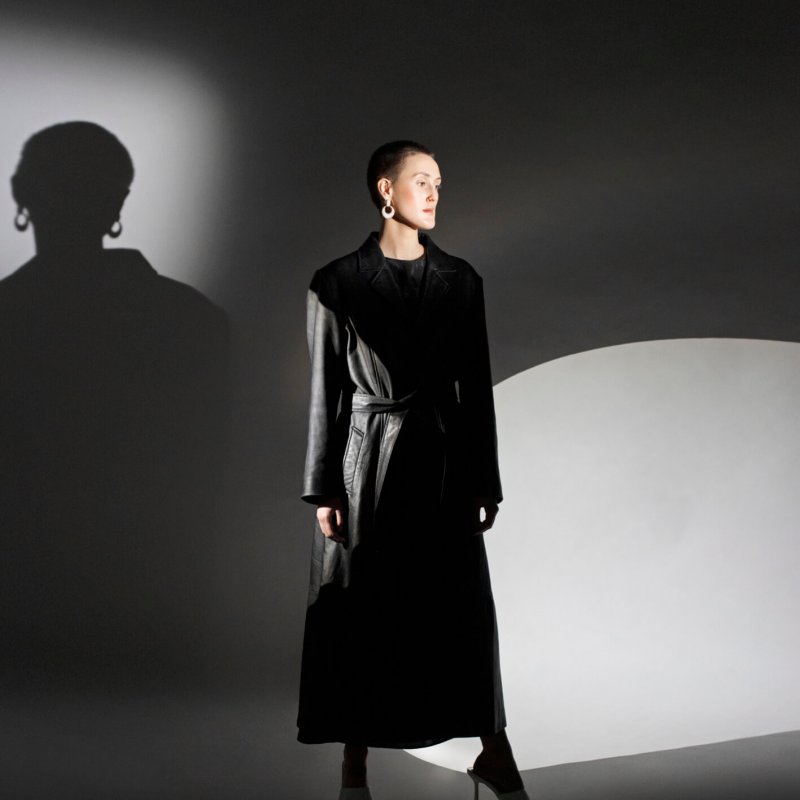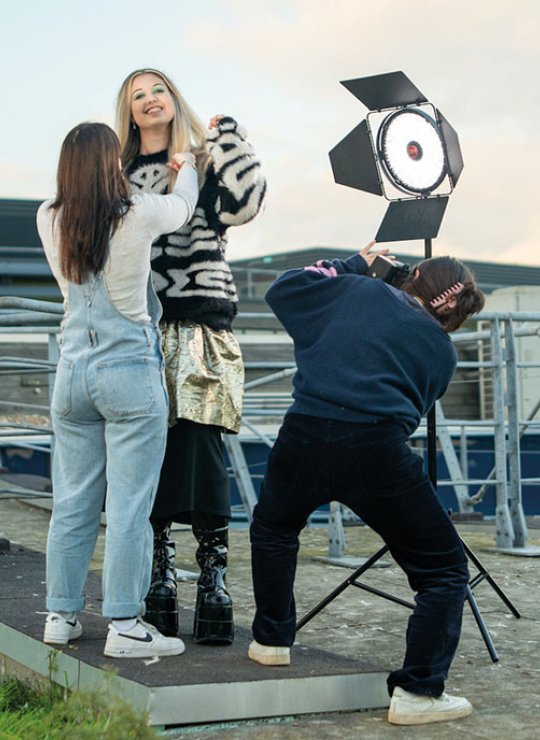
Fashion Styling & Art Direction BA(Hons)
Influence the shape of fashion as you take on the world of fashion styling.
Course overview
In our vibrant studios, future art directors and stylists are busy curating imaginative fashion stories for catwalks, editorial shoots, window displays, fashion films and new immersive spaces. By joining them on this course, you’ll collaborate with fellow creative thinkers and makers from across the University to produce real work for real clients under the expert guidance of passionate lecturers. From garment fitting and editorial art direction to producing advertising campaigns, you’ll develop the skills you need to break into the global fashion industry.
You will:
- Develop confidence as a future fashion visionary, committed to harnessing the power of storytelling through multimedia productions
- Gain the key practical skills necessary to operate at a professional level in the global styling industry
- Engage in debate around the practical and theoretical context of fashion communication
- Work on industry-led briefs as part of a collaborative team of supportive, risk-taking global practitioners, in preparation for your future creative career
- Create a powerful professional fashion styling portfolio to launch into industry
- Have access to enviable facilities, including industrial sewing machines, specialist construction equipment, a dye lab and a contemporary dress and textile archive
Course details
On this Fashion Styling & Art Direction degree, you'll have the opportunity to gain a BA(Hons) degree over three years or the option to study Fashion Styling & Art Direction BA(Hons) with Integrated Foundation Year and/or professional placement study options.
Throughout this degree, you'll learn how to construct powerful fashion stories in real-life visual merchandising environments and fashion shows, as well as immersive 3D digital spaces. You'll become proficient in styling and directing for magazine editorials and advertising campaigns, master garment fitting and construction for runway and celebrity client dressing, and consider the environmental and ethical considerations of the industry.
In year one of this degree, you'll take your first steps to becoming a progressive, conscious, professional and courageous practitioner within fashion styling and art direction. You'll start to develop your technical skills, gain an understanding of the varied specialisms within the disciplines and explore storytelling, sustainability, identity and body politics.
Modules
Fashion Foundations
You'll explore the key practical elements within your creative specialisms including, styling, sourcing, casting, location scouting and creative direction. You'll also learn about the roles and responsibilities of the key players within a creative team.
Fashion & Belonging
Inclusivity and diversity, in the context of global histories and subcultures, are at the heart of this module. You’ll explore the ethical language of fashion and harness your emerging technical skills through a styled fashion photographic portrait project.
Thinking & Storytelling
In this module, you’ll develop your research, critical thinking and analysis skills. You’ll be supported to cultivate confidence in fashion reporting, spotting catwalk trends and curating a point of view.
Body Politics
This module embraces issues around gender, sexuality, race, social position and body image. You’ll deconstruct, customise and reconstruct innovative styled fashion silhouettes, using the latest industry-standard processes and equipment to fulfil your vision. You’ll also have the opportunity to collaborate with your wider network within the Fashion & Textiles Institute.
Earth Action
In this sustainability module, you’ll produce an environmentally conscious art directed zine/publication. This is a further collaborative module where you’ll extend new creative partnerships within the broader creative community at Falmouth. You’ll learn the foundations of magazine design and art direction, including harnessing persuasive contemporary layout and magazine design principles.
In your second year of the Fashion Styling & Art Direction degree, you'll begin to acquire a tenacious, resilient and visionary set of skills for professional practice. You'll take on real-world briefs guided by icons of industry and embrace new technologies and advanced digital processes.
Modules
The Fashion Space
You'll learn how to develop styled characters and write plotlines for fashion film. You'll also learn key art direction techniques for set design, window displays and fashion installations. Creating fashion stories for digital spaces, including Augmented Reality & Green Screen, are also at the creative heart of this exciting module.
The Fashion Show
Taking on the role of fashion editor and influencer, you'll foster vital communication skills by reporting on the fashion season - incorporating fashion histories, the arts and contemporary street fashion.
The Fashion Client
Acting as a real-life fashion consultant, you'll create an exciting visual direction for a contemporary designer or brand. You'll harness industry brand communication platforms such as look books, fashion shows, fashion presentations, catalogues, advertising campaigns, advertorials, social media, event launches and e-commerce.
Collaboration
Working as part of a team, you'll work on 'Challenge Briefs' that reflect the sort of assignments you could expect to be working on in industry. Developing your 'soft skills', like communication, problem-solving, critical thinking and leadership, you'll sharpen your ability to work well as part of a group to produce outstanding work.
You can choose to take an optional professional placement after your second year on a three-year programme, or after your third year if you’re studying for a degree with an Integrated Foundation Year.
You’ll be responsible for finding your own placement, with support from the Employability team.
Choosing this option will enhance your industry experience and skills while studying.
How you’ll study during your professional placement
You’ll spend time working in a professional context, as part of a business or organisation. This can be in one role, or up to three, and must be for a minimum of 24 weeks.
You’ll develop in-demand workplace skills, deepen your insight into industry and grow your network of contacts, all of which could help you get ahead in your career after graduation.
Throughout this year, you’ll develop a portfolio of work that includes critical self-reflection on what has been learned from the experience. You’ll be required to evidence your experiences, the skills you’ve learned and your professional growth.
The final year of the degree consolidates your ground-breaking creative critical thinking, advanced technical skills and professional practice know-how. Modules will give you the leverage to launch yourself into industry as a visionary fashion stylist and art director.
Modules
The Fashion Consultant
You'll work with pre-selected iconic global clients, experience working in advanced professional teams and nurture authentic relationships with casting directors, location scouts, photographers, hair & make-up artists, model agencies and creative directors.
Breaking Ground
You'll be challenged to explore research ideas and issues that are central to your emerging fashion identity. You'll identify a topic, formulate a research strategy and plan and execute a piece of creative writing that reflects your practice and future career aspirations. Inspired by your research journey, you'll also produce a Project Proposal for your Final Major Project.
Fashion Visionary
You'll embark on an extended Final Major Project. Harnessing sophisticated modes of visual communication, you'll draw upon your understanding of specialist styling and direction techniques, and aligned communication platforms, to realise your new professional identity. Your Final Major Project will be showcased in an end-of-year exhibition.
Future Skills
You'll cultivate your professional journey, developing an understanding of your skills in the context of industry and employment. You'll be equipped with the confidence to articulate your knowledge and abilities, and evidence how you can apply them to real world challenges.
Working on a collaborative or solo project, you'll deliver real results, whether that's a profit on some seed funding, a professional portfolio of work, or a solution to a real-world challenge from industry.
Why study an Integrated Foundation Year route?
If you’re taking on a new subject that you haven’t studied in depth before, have been out of education for a while or have a non-standard educational background then an Integrated Foundation Year degree may be the right choice for you. It is a four-year degree with an Integrated Foundation Year to start, which allows you to explore the primary elements of your subject before progressing on to the remaining three years of the BA(Hons) degree.
What you'll learn
If you choose this pathway, you'll study five core modules in your Foundation year. These are all designed to help you explore the foundational elements of your subject. You'll gain relevant technical skills, learn to experiment and take risks, develop an understanding of professional practice, have opportunities to work across disciplines and collaborate with other students on live project briefs.
Modules
Explore
You'll begin your foundation year by working collaboratively with others to explore themes of the future. You'll take risks, experiment through play and be supported to break through barriers.
Technique
You'll take subject-specific workshops and develop essential technical and practical skills in your area of study. You'll also enhance your analytical and organisational abilities.
Apply
You'll work with your peer group to think beyond discipline by addressing a societal or global issue. You'll then showcase your work to your peers and deliver and accompanying evaluation of your process.
Industry
You'll enhance your creative and practical skills in your subject specialism by responding to typical industry briefs, underpinned by focused research and experiments. You'll also gain industry insights through guest lectures and workshops.
Launch
You'll develop your unique identity in your specialism through the production of a self-initiated body of work. Your final project will be the bridge to your next year, fully supported by evaluative reviews and critical analysis of the work you have created.
After the Foundation year, you progress into Year One of the full three-year degree, equipped with a deeper knowledge of your subject, a clear understanding of your strengths, and develop a practical and technical skillset and the confidence to excel in your chosen subject.
If you apply for and enrol onto a degree with an Integrated Foundation Year, you’ll have the option to switch onto a five-year version including a placement year. That means you’ll complete the first three years of your course before completing a placement in industry in your fourth year and returning to Falmouth for the fifth year of your programme.
As part of our process of continuous improvement, we routinely review course content to ensure that all our students benefit from a high-quality and rewarding academic experience. As such, there may be some changes made to your course which are not immediately reflected in the content displayed on our website. Any students affected will be informed of any changes made directly.
From module information to course aims and assessment criteria, discover the full course details:
Facilities
- Collaborate with fashion photographers in our fully equipped, industry-standard photo studios
- Build your garment fitting and constructing skills using our industrial sewing machines and specialist design equipment
- Experiment with colour in our dye lab, using our home-grown natural plant-based pigments
- Create sets for window displays and fashion presentations using our digital and traditional screen-printing facilities & laser cutting equipment
- Construct 3D styling looks in our digital suites using innovative industry standard software
- Work with clothes and costumes from our on-site wardrobe store and learn through our historical and contemporary fashion archive collection
- Develop your talents as a fashion cultural translator through our expansive fashion magazine archive
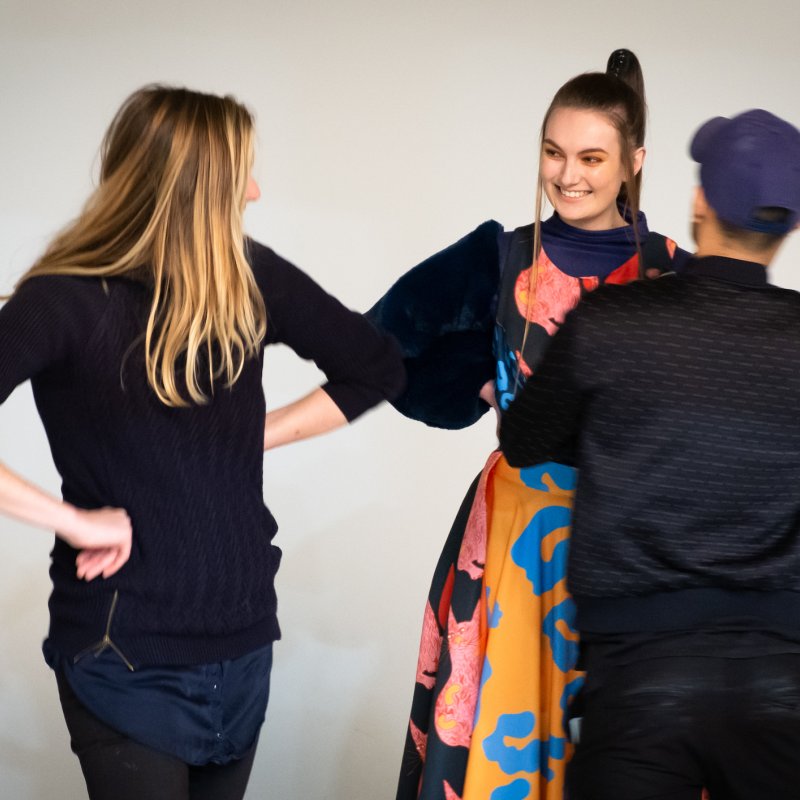
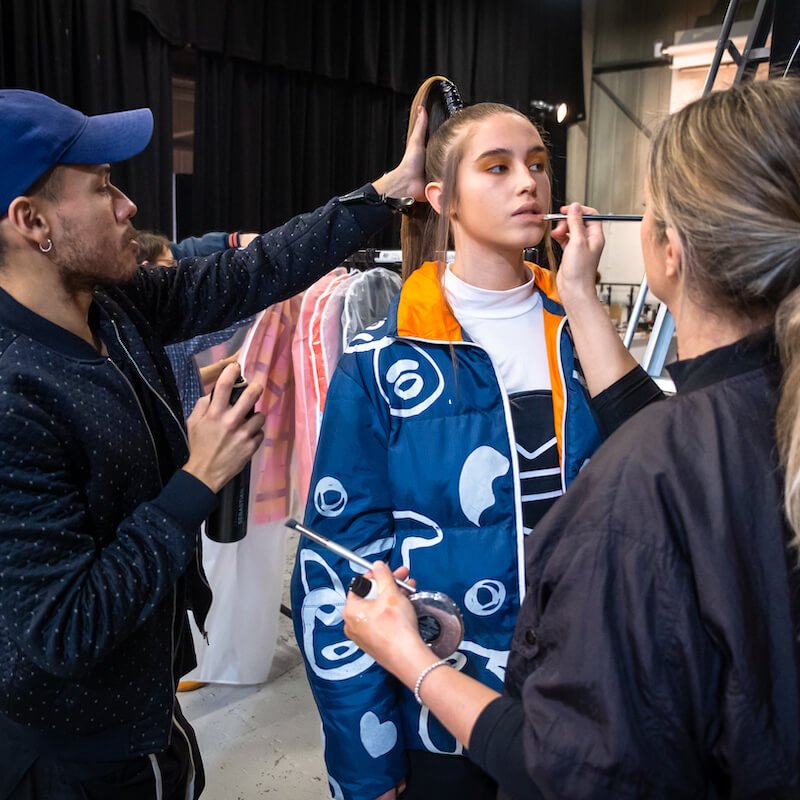
How you'll learn & be assessed
Based within the Fashion & Textiles Institute, you’ll learn through a blend of lectures, seminars, tutorials, workshops and practical demonstrations. You’ll also develop professional practice skills by collaborating with peers across the University on project work.
At Falmouth, we use a 'digitally enhanced learning & teaching' approach. Your experience will always be predominantly in-person, including seminars, tutorials and studio teaching, with some, more targeted elements, being online either live (synchronous) or pre-recorded (asynchronous). You can read more here.
You'll be assessed through coursework and practical submissions.
Assessment methods
Assessments can take many forms, including:
- Practical projects
- Presentations
- Portfolios
- Critical writing
Foundation year assessments are 100% coursework based.
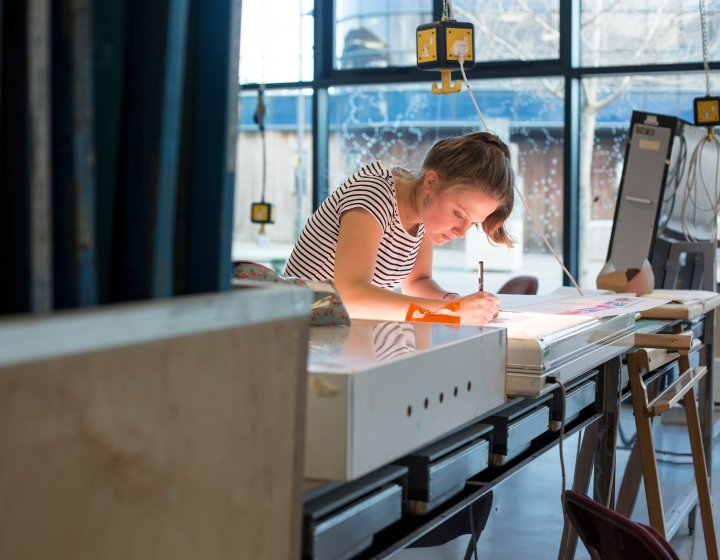
Fashion & Textiles Facilities
Centred around studio spaces that cater for solo and group working, our Fashion & Textiles Insti...
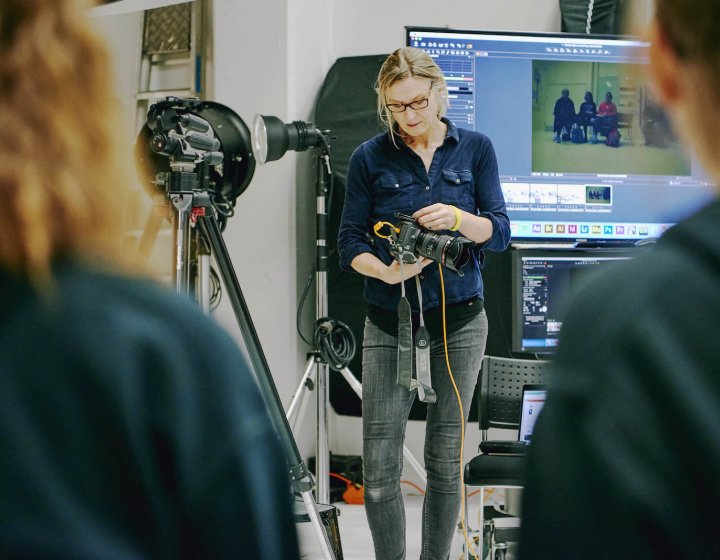
Photography Facilities
Housing dark rooms, post-production suites, full professional studios and gallery, our Institute of ...
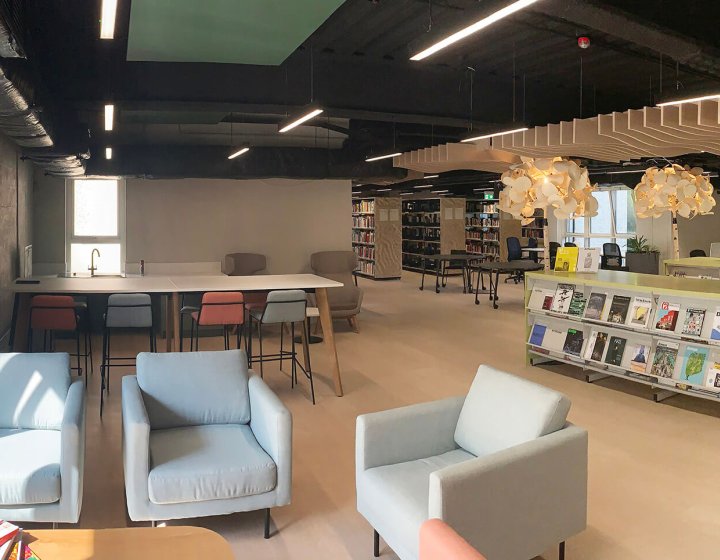
Library Facilities
Offering extensive collections, our two libraries provide a wealth of digital resources, magazines, ...

Sports Centre
Our Sports Centre, on Penryn Campus, includes a spacious gym with up to 90 of the latest, new statio...
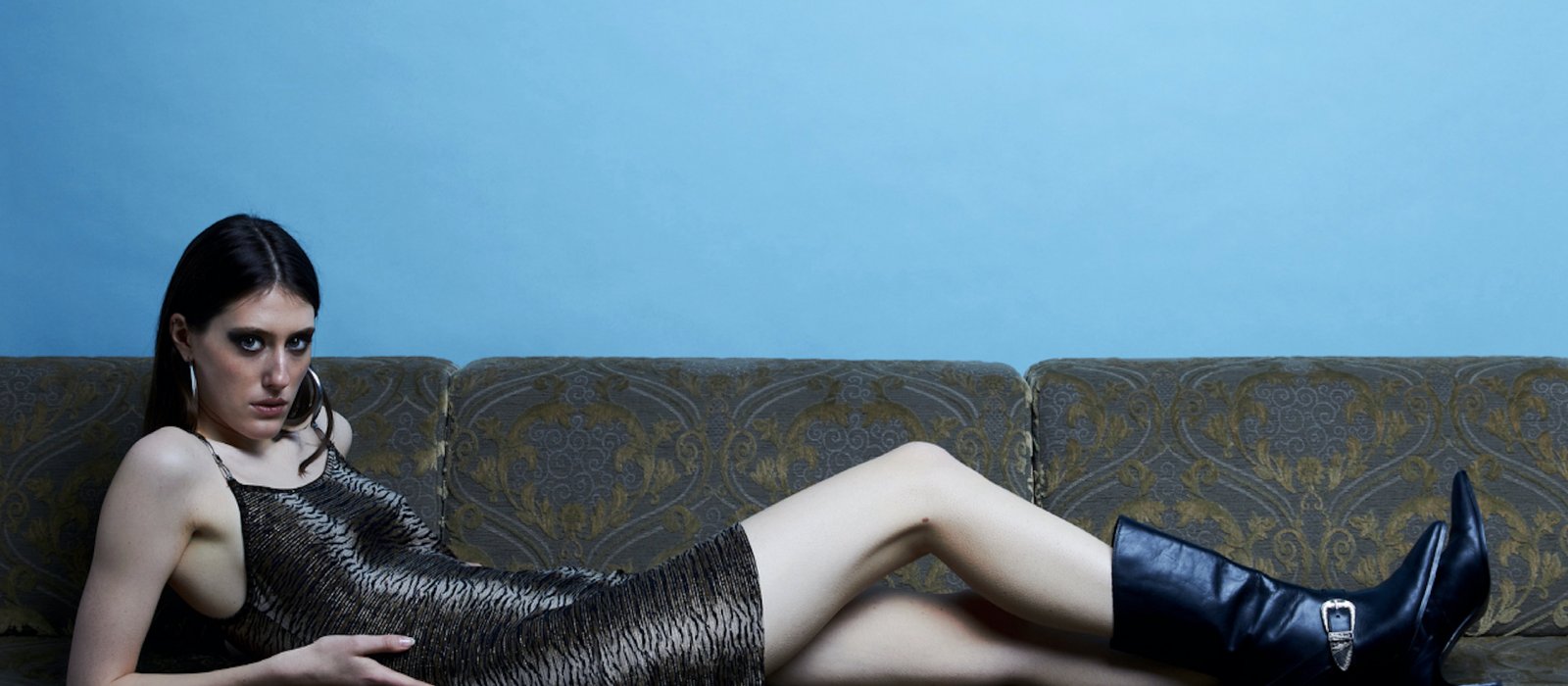
Stories from our community
Explore student projects, graduate successes, staff news and industry insights
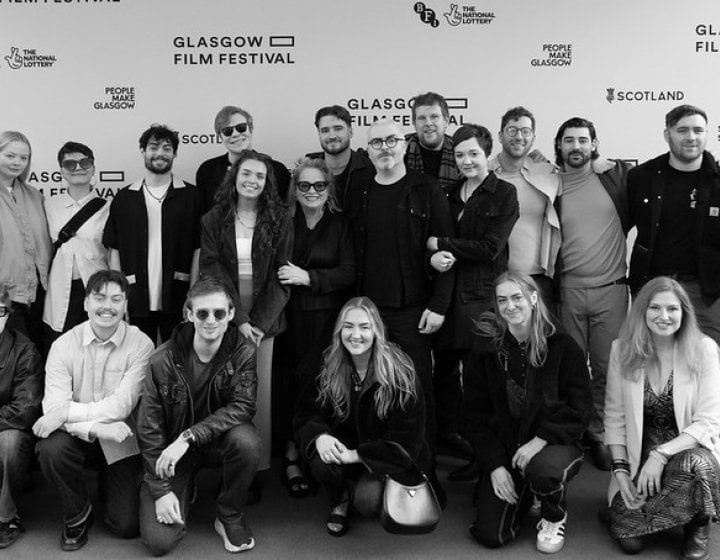
‘The Birdwatcher’ premieres at UK’s leading horror film festival
21 March 2025
Students from across Falmouth’s School of Film & Television, Fashion & Textiles Institute, and Gam...

Sustainable Fashion students collaborate with The Independent
27 February 2025
Members of Falmouth’s Sustainable Fashion MA (Online) community recently came together with The In...
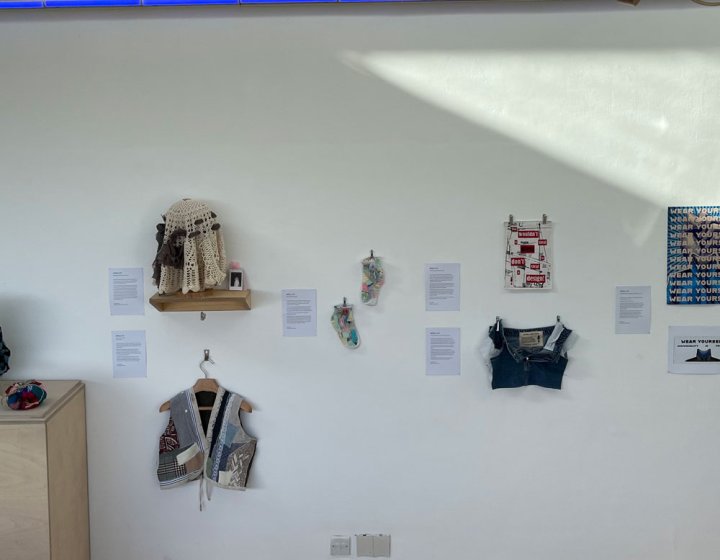
Fashion and Textile students’ work displayed at Newlyn Art Gallery & The Exchange
12 February 2025
Students across Falmouth’s Fashion & Textiles Institute have been selected to have their work feat...

Graduate Spotlight: Textile Designer Lucy Martin
03 February 2025
Nature-loving textile design graduate Lucy Martin’s career has got off to an exciting start. Hot o...
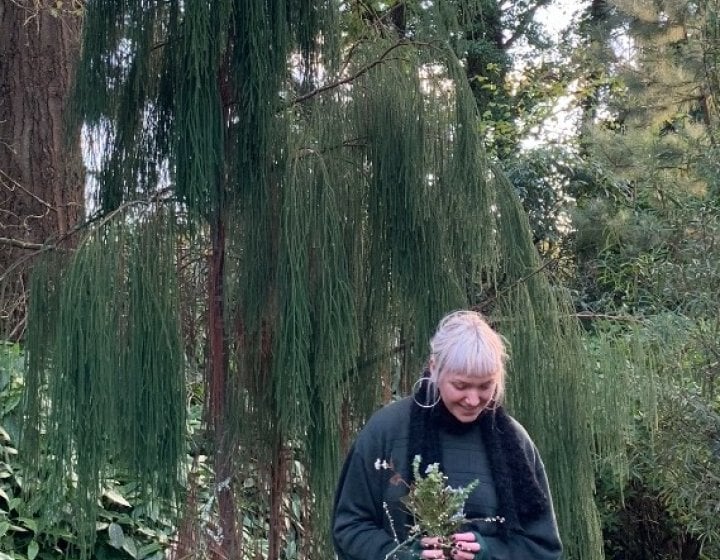
Why I chose to study Fashion Marketing at Falmouth
03 January 2025
This article was written by Fashion Marketing BA(Hons) student Belle.
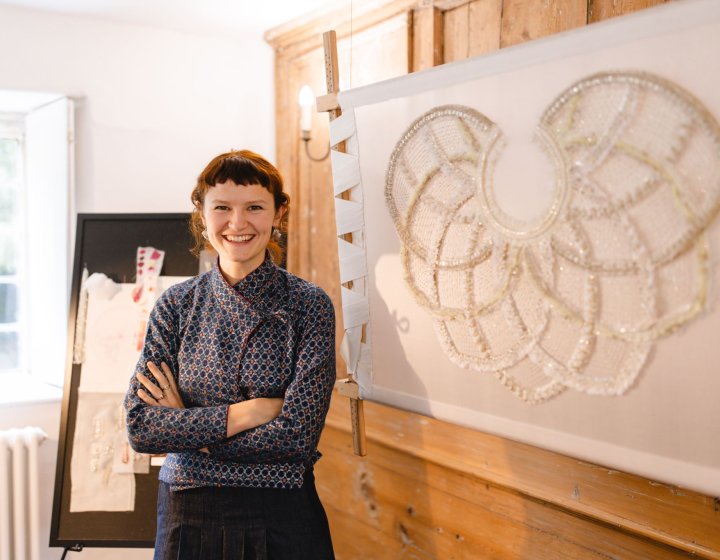
Credit: Oliver Holmes
From CHANEL to Queen Camilla: a catch-up with Textile Design graduate Beth Somerville
10 December 2024
2023 was a big year for Textile Design BA (Hons) graduate Beth Somerville. From being named overall ...

The group at the residency. Credit: Future Island-Island
Sustainable Fashion students win Regenerative Rathlin Open Design Competition
03 December 2024
Two students on Falmouth’s online master’s in Sustainable Fashion have recently attended a desig...

Graduate Spotlight: 3D and Digital Product Design Manager Georgia Featherstone
13 November 2024
Since graduating from Fashion Design BA(Hons) in 2021, Georgia Featherstone has made an impressive r...
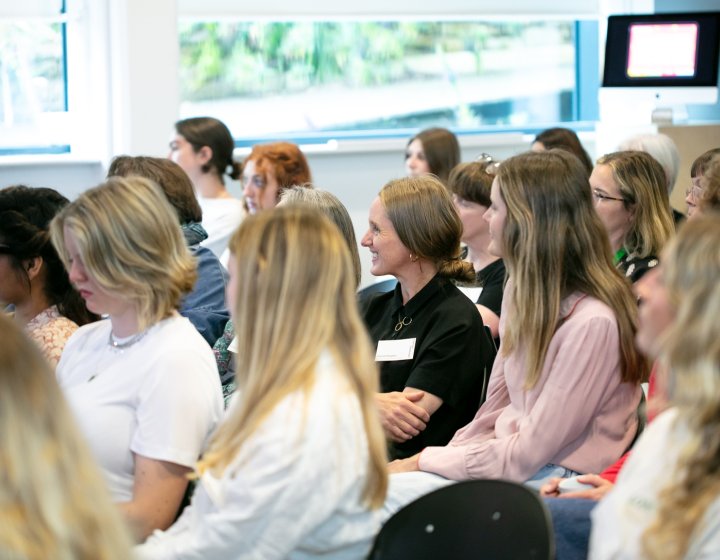
Credit: Matt Jessop
Fashion & Textiles Institute host inaugural Fashion Redesign Forum
26 September 2024
A team of senior lecturers, students and senior technicians from Falmouth’s Fashion & Textiles Ins...
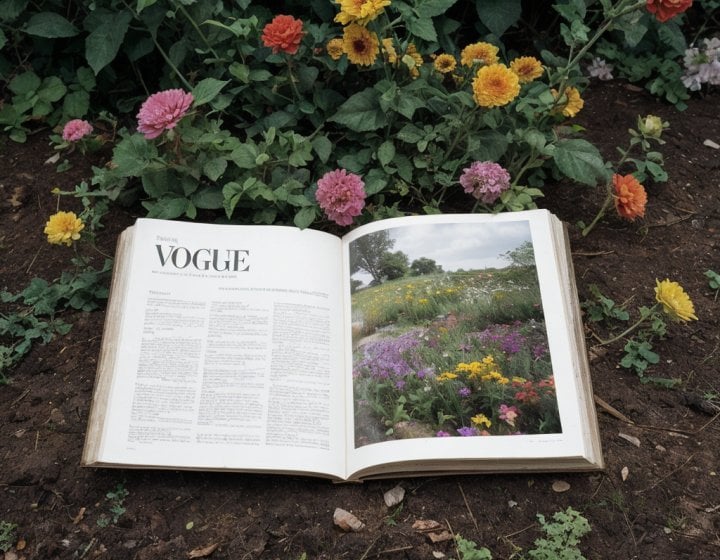
Erin Donohoe (2024), Ai generated image of a Vogue magazine that can be planted in soil and grow and ‘Vogue Garden.’
Meet Erin Donohoe, the Sustainable Fashion student reimagining fashion magazines
08 August 2024
Sustainable Fashion MA (Online) student Erin Donohoe has created a powerful reimagining of the fashi...
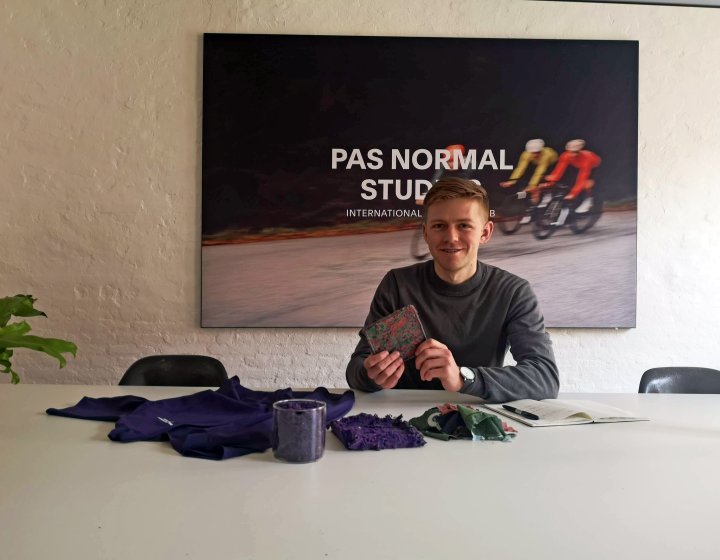
From Sustainable Product Design student to inspiring sustainability leader
22 July 2024
Charlie Clarke is a rising star in the world of sustainability. Since graduating from Falmouth’s S...
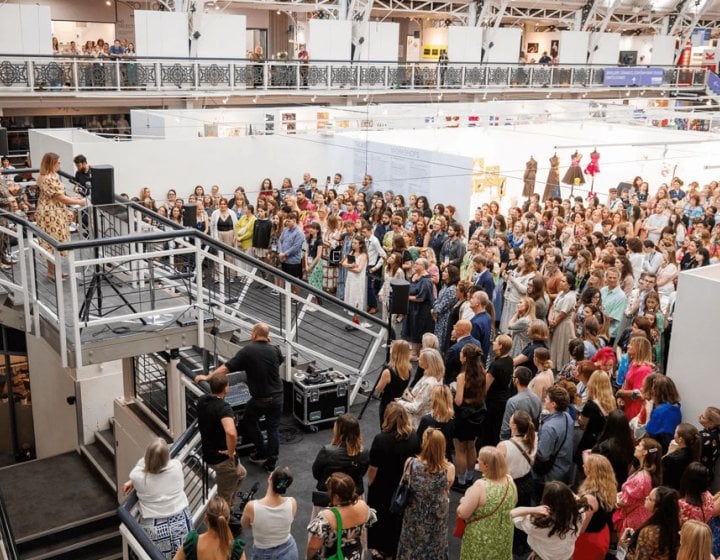
New Designer awards fruitful for five students
12 July 2024
The prestigious annual New Designers awards are judged by key industry leaders to find the rising s...
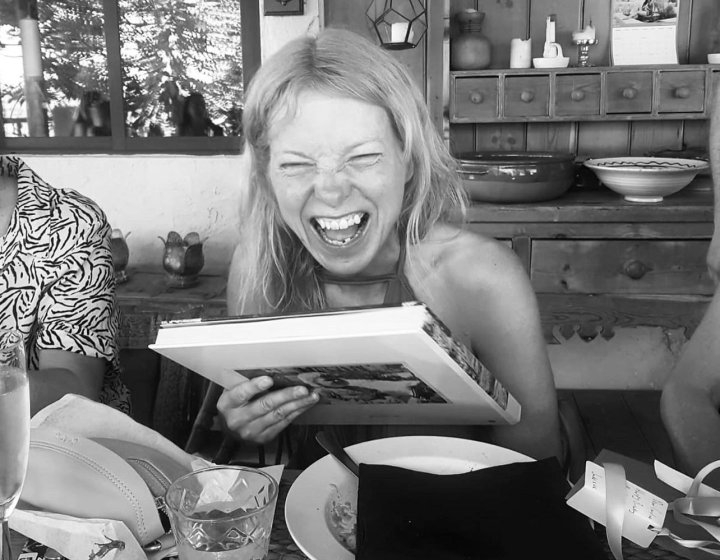
Sustainable Fashion MA student Caroline Garland attends the Global Fashion Summit for The Independent
25 June 2024
Caroline Garland is a writer and aspiring fashion journalist. As a student on Falmouth’s online ma...
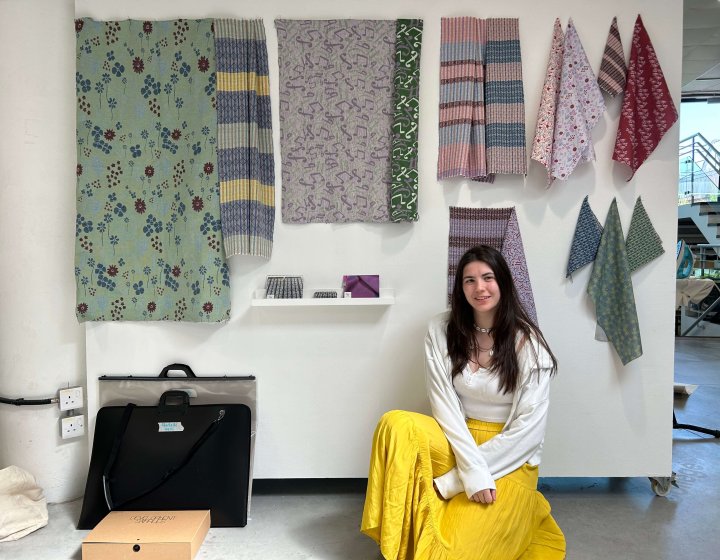
Textiles graduand secures job at historic silk mill
24 June 2024
Textile Design BA graduand Charlotte Wells will become a Mill Assistant at Whitchurch Silk Mill - th...
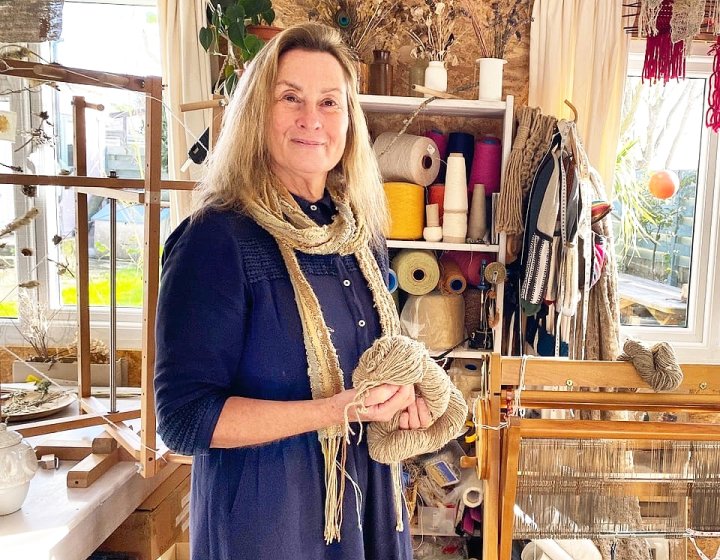
Textile Design BA graduate and Nettle Revolution founder wins the Theo Paphitis, Small Business Sunday Awards
22 May 2024
In an inspiring event earlier this year, Jane Gray, Founder and Coach of health and wellbeing compan...
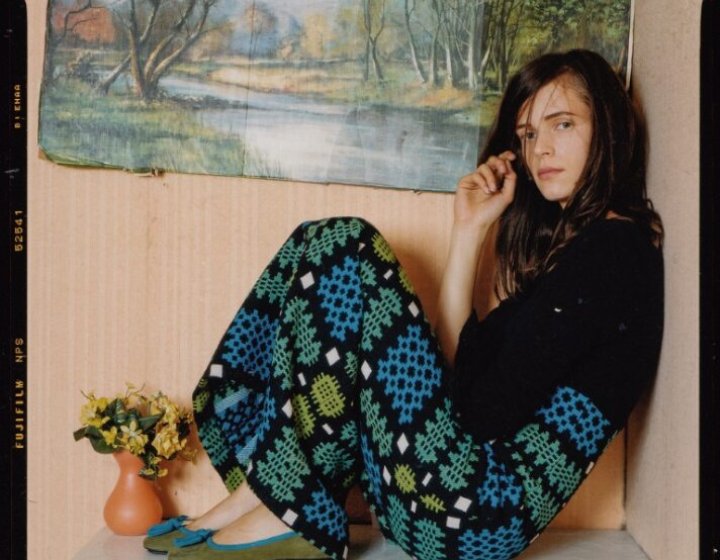
5 Minutes with: Anti-Fashion Photography Disruptor, Donald Christie
03 May 2024
Donald Christie’s iconic photography style was a seminal part of the ‘anti-fashion’ 1990s yout...
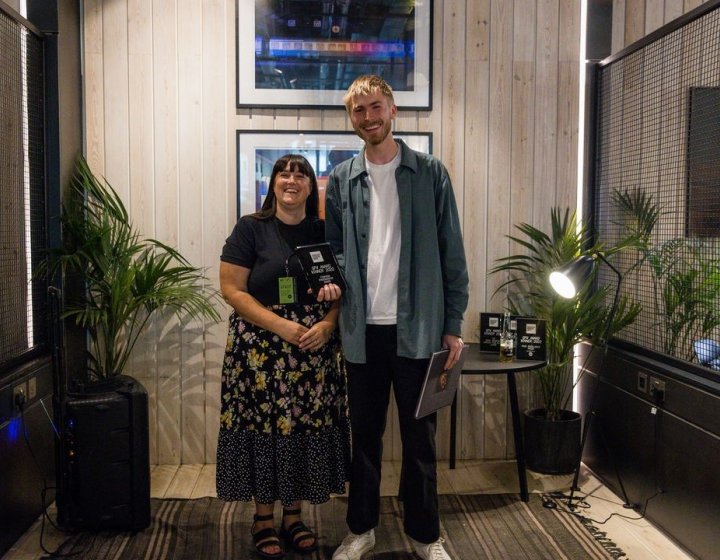
How Falmouth’s future-focussed approach is inspiring graduate fashion photographer Torgeir Rørvik
24 April 2024
A top award winner in 2022 at Graduate Fashion Week, the world’s largest showcase of BA fashion ta...
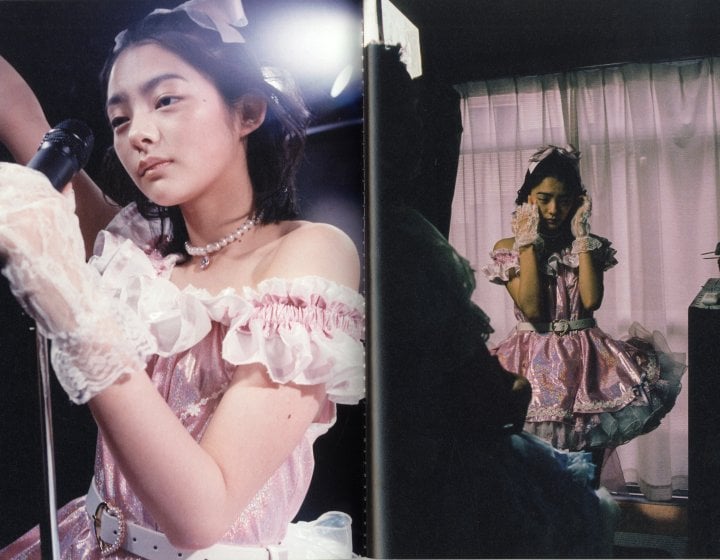
Falmouth student designs latest edition of Petra Collins’ ‘OMG I’m Being Killed’
17 April 2024
Third-year Fashion Photography BA(Hons) student Alexa Rayner has designed the latest edition of Petr...
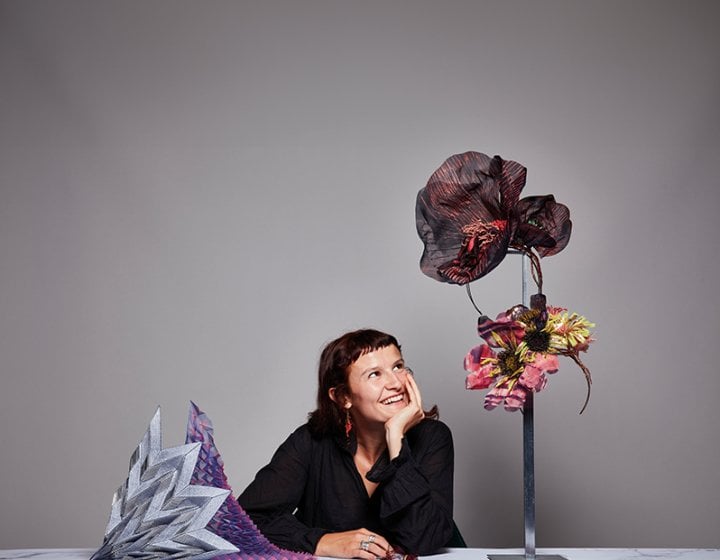
Putting the tech into textiles: Meet Falmouth graduate Beth Somerville
03 April 2024
From being named overall winner of New Designers 2023 to being selected for the Chanel and King’s ...
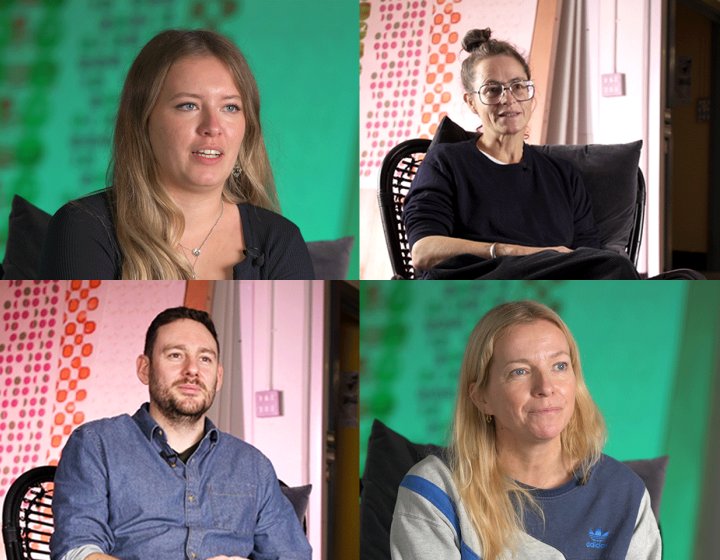
Meet our Sustainable Fashion online community
12 February 2024
Since its launch in 2022, Falmouth's Sustainable Fashion MA (Online) community has been going from ...
Staff
Staff will have industry experience working in many areas of fashion styling and art direction. You'll also learn from industry experts through our Fashion & Textiles Institute guest lectures.
Some members of staff only teach on specific modules, and your course might not feature every staff member who teaches on the course.
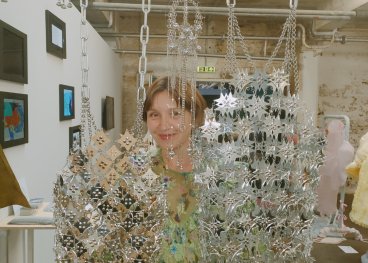
Masha Mombelli
Lecturer, Fashion Photography BA(Hons) and Fashion Styling & Art Direction BA(Hons)
Lecturer Masha Mombelli is a freelance fashion stylist, film-maker and artist. In her native St. Pet...
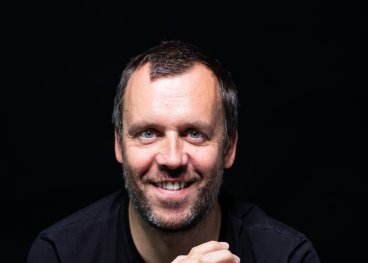
John Boddy
Head of Fashion Design
John studied fashion design, specialising in womenswear, at Central Saint Martins College of Art and...

Marianne Kakko
Lecturer, Fashion Styling and Art Direction BA(Hons)
Marianne has worked many years in the field of styling before moving from a Fashion Market Editor ro...

Got a question about this degree? Ask our course team now.
Chat to usCareers
As a graduate from this Fashion Styling & Art Direction course, you could become:
- A creative director, art director, show producer or set designer
- A celebrity, runway, editorial or personal stylist
- A stylist for e-commerce, product or still life
- A fashion researcher or curator
- A fashion futurologist, visual merchandiser or model scout
What can you do with a fashion degree?
There are opportunities to pursue costume design for film and television or fashion media. Alternatively, graduates may wish to move into styling, advertising or editing.
How to apply
Ready to apply for 2025?
You can apply for our undergraduate degrees via UCAS. You'll need our university UCAS code (F33) as well as your course code (which you'll find on your course page) for your application.
| Course route | UCAS code |
|---|---|
| Fashion Styling & Art Direction BA(Hons) three year degree | W234 |
| Fashion Styling & Art Direction BA(Hons) with Integrated Foundation Year | FY34 |
| Fashion Styling & Art Direction BA(Hons) with professional placement | W235 |

Application advice & interview information
Go to ToolkitFor starting your studies in 2025
UK applications: 29 January 2025 (for equal consideration)
Applications after the 29 January will be considered on a first-come, first-served as long as there are places available. Apply for this course now.
International fee payers
International fee payers can apply throughout the year. But we recommend applying as early as possible, to make time for visa and travel arrangements.
We consider all applications on their own individual merit and potential. We invite all applicants to an interview day or audition to give them the opportunity to demonstrate this along with what inspires and motivates them in their field. Applicants will also be able to show their portfolio or give a performance depending on the course. We welcome applications from all subject backgrounds, whether you’ve specialised in STEM, the arts or humanities.
Course routes & entry requirements
BA/BSc(Hons) three year degree: 104 – 120 UCAS Tariff points
BA/BSc(Hons) four year degree with professional placement: 104 – 120 UCAS Tariff points
BA/BSc(Hons) four year degree with Integrated Foundation Year: 80 – 120 UCAS Tariff points
Check the title of your course to see if it's a BA or BSc award. UCAS Tariff points will primarily be from Level 3 qualifications such as but not limited to A-levels, T Levels, a BTEC/UAL Extended Diploma or a Foundation Diploma.
For applicants whose first language is English we require you to have or be working towards GCSE English Language Grade 4 (C), or equivalent.
If English is not your first language you will need to meet the same standard which is equivalent to the IELTS Academic 6.0 overall score, with at least 5.5 in Reading, Writing, Speaking and Listening. We accept a range of in country equivalencies and approved tests.
If you need a student visa to study in the UK, you may need to take a recognised language test. You can read our English Language Requirements for more information.
Fees, costs & funding
Tuition fees
| Annual tuition fee | Student |
|---|---|
| £9,535 per year | Full-time UK |
| £17,950 per year | Full-time EU/international |
| £1,905 per professional placement year | Full-time UK and EU/international |
| £9,535 per Integrated Foundation Year | Full-time UK |
| £17,950 per Integrated Foundation Year | Full-time EU/international |
| Annual tuition fee | Student |
|---|---|
| £9,250 per year | Full-time UK |
| £17,950 per year | Full-time EU/international |
| £1,850 per professional placement year | Full-time UK and EU/international |
| £9,250 per Integrated Foundation Year | Full-time UK |
| £17,950 per Integrated Foundation Year | Full-time EU/international |
Tuition fees for September 2026 will be confirmed in summer 2025.
Tuition fees are set annually and are subject to review each year. The University may therefore raise tuition fees in the second or subsequent years of a course, in line with inflation and/or the maximum permitted by law or Government policy. Students will be notified of any changes as soon as possible.
The figures above don't include accommodation and living costs
Typical course costs
- £200-300 – Recurring annual cost (project materials and essential styling kit, such as pins, elastic bands, sewing kit and bulldog clips)
- Adobe Creative Cloud - You will need access to Adobe Creative Cloud. You may be eligible for discounted licenses through Adobe's education pricing and Falmouth University seeks to provide further discounts when possible. If any discounts are available, we will communicate these to you. For more information please visit Adobe Creative Cloud.
- £300 – One-off cost for the duration of the course (laptop)
If you need to bring equipment or materials with you, these will be outlined in your Welcome Letter.
Additional typical course costs for Integrated Foundation Year pathway
- £250 for materials
- A laptop/desktop computer
- Adobe Creative Suite
To engage in the digital learning activity, although you will be able to access IT suites on campus, you will benefit from a laptop to access the platforms and tools we use. Depending on your subject, you may need a specific type of computer. If you're unsure about what you might need, please contact our course advisors.
Funding
For information about funding available, please visit our student funding pages.
Ask a student
What better way to find out about life at Falmouth University than by asking our current students?
From course details and academic support, to the social scene and settling in, our students are ready and available to answer any questions you might have. Simply set up your account, send them a question and they'll get back to you within 24 hours.
Similar courses
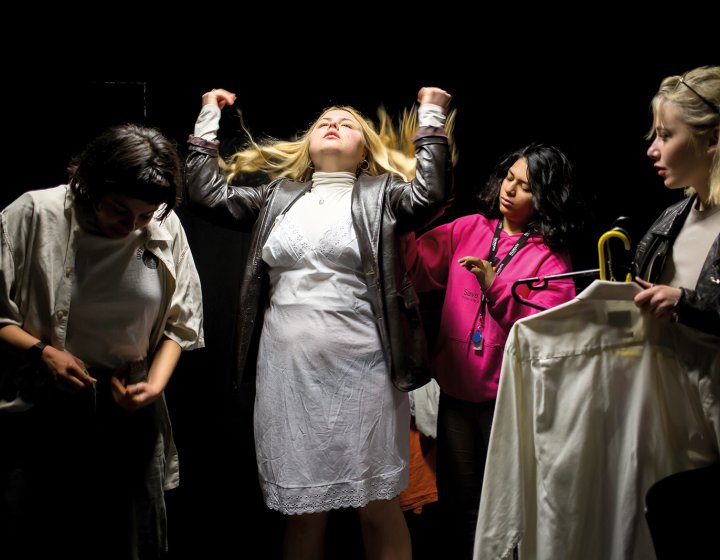
Costume Design for Film & Television BA(Hons)
On this dynamic course, you’ll cultivate the practical, creative and theoretical skills needed to ...
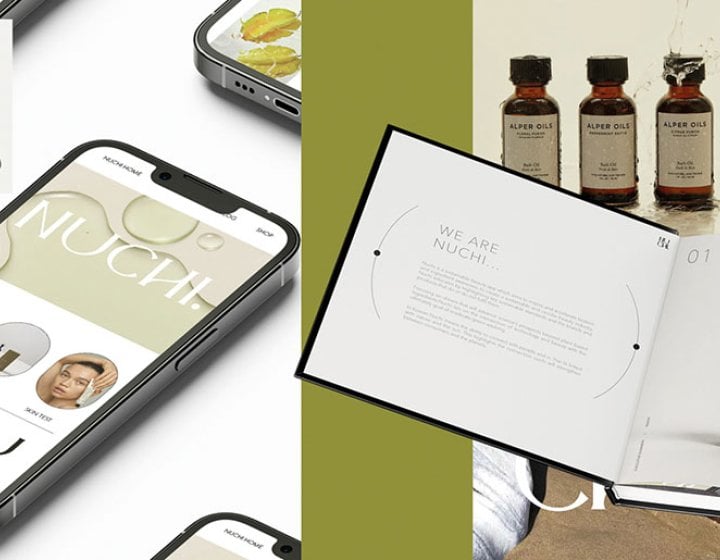
Fashion Marketing BA(Hons)
Blend your flair for communication and eye for fashion into a successful career as a fashion markete...

Fashion Design BA(Hons)
Turn heads and change minds as you steer the fashion industry toward a more sustainable future. Work...
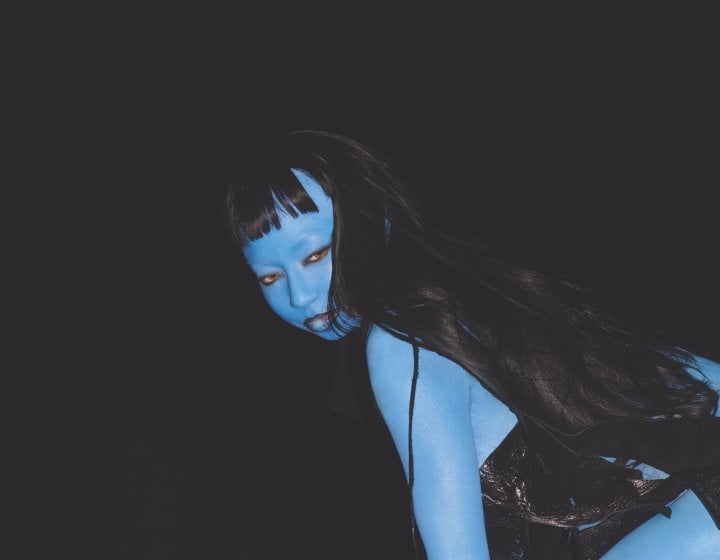
Work by Alice Marple Horvat
Fashion Photography BA(Hons)
Develop your unique artistic voice and springboard into the industry as an innovative fashion photog...
Open Days and events
From visiting campus to online application advice, get all the information you need about joining our creative community.
Find an event


